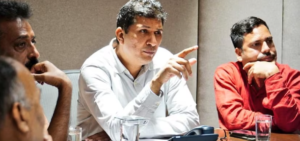The healthcare system is the backbone of any society, ensuring the well-being and prosperity of its citizens. However, in many countries, including India, healthcare infrastructure and services face numerous challenges, ranging from inadequate funding and resources to systemic inefficiencies and disparities. In a landmark decision, the High Court (HC) has directed action on a health bill to Bhardwaj, highlighting the urgent need for comprehensive healthcare reform. This article explores the implications of the court’s directive, analyzes the state of healthcare in India, and proposes measures to address the pressing issues facing the sector.

In a recent ruling, the High Court issued a directive to Bhardwaj, urging swift action on a pending health bill aimed at overhauling the healthcare system. The court’s intervention underscores the gravity of the healthcare crisis and the failure of successive governments to enact meaningful reforms. Bhardwaj, as a key policymaker, is tasked with spearheading efforts to enact legislation that will transform the healthcare landscape and improve access to quality healthcare services for all citizens.
India’s healthcare system faces a multitude of challenges, including inadequate infrastructure, unequal distribution of resources, shortage of healthcare professionals, and limited access to essential services, particularly in rural and underserved areas. Despite significant progress in recent years, India continues to grapple with high rates of maternal and child mortality, infectious diseases, and non-communicable diseases (NCDs) such as diabetes and cardiovascular ailments.
The COVID-19 pandemic further exposed the vulnerabilities of India’s healthcare system, highlighting gaps in preparedness, response, and resilience. Overwhelmed hospitals, shortages of medical supplies and oxygen, and disparities in vaccine distribution underscored the need for urgent reforms to strengthen the country’s healthcare infrastructure and capacity.
The health bill under consideration encompasses a wide range of provisions aimed at addressing the systemic challenges plaguing India’s healthcare system. Key components of the bill include:
- Universal Healthcare Coverage: The bill seeks to ensure universal access to essential healthcare services for all citizens, regardless of their socio-economic status or geographic location. This includes provisions for primary healthcare, preventive services, and treatment for acute and chronic conditions.
- Infrastructure Development: To address the shortage of healthcare facilities and resources, the bill allocates funds for the construction and renovation of hospitals, clinics, and primary healthcare centers. It also incentivizes private sector participation in healthcare infrastructure development.
- Healthcare Workforce Development: Recognizing the critical role of healthcare professionals in delivering quality care, the bill proposes measures to enhance training, recruitment, and retention of doctors, nurses, and allied health workers. This includes initiatives to increase medical education capacity and improve working conditions for healthcare personnel.
- Health Information Systems: The bill emphasizes the importance of robust health information systems for data collection, analysis, and monitoring of health outcomes. It mandates the establishment of electronic health records (EHRs) and health information exchanges to facilitate seamless coordination and continuity of care.
- Health Financing and Insurance: Addressing the financial barriers to healthcare access, the bill introduces mechanisms for health financing and insurance, including government-sponsored schemes and subsidies for low-income populations. It also promotes innovative financing models such as health savings accounts and social health insurance schemes.
Despite its noble intentions, the health bill faces several challenges and controversies that must be addressed to ensure its effective implementation. These include:
- Funding Constraints: One of the primary challenges is securing adequate funding for the implementation of the health bill’s provisions. Given competing priorities and budgetary constraints, Bhardwaj must explore innovative financing mechanisms and partnerships to mobilize resources for healthcare reform.
- Regulatory Framework: The bill’s success hinges on the development of a robust regulatory framework to govern healthcare delivery, quality standards, and accountability mechanisms. Bhardwaj must navigate complex regulatory issues and stakeholder interests to ensure effective oversight and compliance.
- Stakeholder Engagement: Meaningful healthcare reform requires active engagement and collaboration with a diverse range of stakeholders, including government agencies, healthcare providers, civil society organizations, and the private sector. Bhardwaj must foster dialogue and consensus-building to garner support for the bill and address concerns raised by different stakeholders.
- Implementation Challenges: Translating policy into practice poses significant implementation challenges, including capacity constraints, bureaucratic inertia, and resistance to change. Bhardwaj must develop a comprehensive implementation strategy with clear timelines, targets, and monitoring mechanisms to track progress and address bottlenecks.
- Political Will: Ultimately, the success of the health bill depends on political will and leadership to prioritize healthcare reform and overcome vested interests and partisan politics. Bhardwaj must mobilize political support across party lines and leverage public opinion to drive momentum for change.
The High Court’s directive to Bhardwaj to take action on the health bill represents a watershed moment in India’s quest for healthcare reform. It is imperative that Bhardwaj seizes this opportunity to enact legislation that will transform India’s healthcare system and ensure access to quality healthcare for all citizens. By addressing the systemic challenges and controversies surrounding the health bill, Bhardwaj can pave the way for a healthier, more equitable, and resilient future for India. The time for action is now.